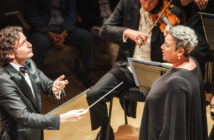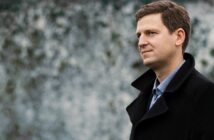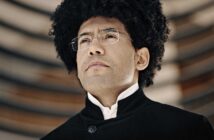
There is no one hotter in the world of classical music today than Chinese pianist Lang Lang. What a coup for Maestro Christoph Eschenbach and the Schleswig-Holstein Festival Orchestra (SHFO) that he agreed to be the featured soloist on their first North American tour!
In this extraordinarily long tour of twenty-three concerts in thirty-two days, Lang Lang played concertos by Prokofiev, Mozart and Beethoven, with Eschenbach at the podium.
I caught up with this remarkable road show at the Long Center in Austin, Texas.
An Intimate Destination for Music Festival Connoisseurs
The Schleswig-Holstein Music Festival is based in Salzau Castle, 100 kilometers north of Hamburg, Germany. Over the past thirty years it has grown into one of the most prestigious festivals in Europe.
Each year, a new festival youth orchestra is created after months of international auditions. One hundred young musicians are selected from over a thousand applicants around the world, and these fortunate 100 spend the summer in Salzau working with some of the world’s greatest conductors.
Leonard Bernstein founded the Orchestral Academy of the Schleswig-Holstein Music Festival, and his work has been carried on by conductors of the stature of Valery Gergiev, Kurt Masur, Sir Georg Solti and Christoph Eschenbach.
Fabulous – Fast and Furious – Clearly The Best of the Best!
The SHFO Austin concert opened with Prokofiev’s Symphony No. 1 “Classical,” played with great precision and panache. I particularly liked the way Eschenbach shaped the brief Gavotta, reminding us that Prokofiev was, after all, a great ballet composer. The Finale went like the wind, showing off the orchestra’s virtuosic winds to great advantage.
Attentive listeners might have noticed a quote from Beethoven’s Seventh in this symphony – an example of Prokofiev’s ‘affectionate parody’ of classical style.
Lang Lang’s Mozart Showy and Exquisite
Lang Lang continues to astound audiences the world over with his incredible technique, but lately he is giving audiences much more – a deepening musicianship. He has gone out of his way, for example, to enrich his study of Bach and Beethoven with Daniel Barenboim, and of Mozart and Schubert with Eschenbach – each of these maestros an internationally acclaimed piano virtuoso in his own right.
On this night, Lang Lang collaborated with Eschenbach on Mozart’s Piano Concerto No. 17 in G major K. 453. There is room for virtuosity here – Mozart, like Lang Lang, enjoyed showmanship – but the higher musical values required are beauty of tone and maturity of phrasing, and in this performance, Lang Lang demonstrated that he can play Mozart as well as he plays Tchaikovsky and Rachmaninov. The rapport between pianist, conductor and orchestra was remarkable. The give and take was exemplary from beginning to end.
As Only Lang Lang Can!
For his encore, Lang Lang chose the thrilling finale from Prokofiev’s Piano Sonata No. 7. He played with incredible abandon and the kind of bravura that is nearly unique today.
Traditional Beethoven Mindful of the Masters
This evening’s performance of Beethoven’s Seventh Symphony opened with an unusual ‘delayed’ first chord; this was quite deliberate on Maestro Eschenbach’s part, but at least one critic reviewing an earlier performance on this tour complained about a lack of unanimity in the orchestra.
In fact, Eschenbach was employing a style of attack considered the norm when Furtwängler and Böhm were conducting. German orchestras were trained to play the first chord in classical works after, rather than on, the conductor’s downbeat, the goal being that the musicians should feel the first chord together, and enter accordingly.
With orchestras trained in this tradition, this tactic works quite well – as it did in Austin.
Eschenbach’s approach throughout the symphony was traditional rather than, as is ‘fashionable’ today, an emulation of the style advocated by the period instrument specialists.
There was lots of vibrato in this performance and tempi were moderate rather than fast to the point of unintelligibility. The timpani were forceful, but not intrusive as they so often are in period instrument performances. The performance had plenty of excitement, as Eschenbach whipped up his players in all the right places.
As an encore Eschenbach and the SHFO offered a powerful performance of Beethoven’s “Prometheus Overture.”
For Those Wanting More…
If you are interested in hearing the Schleswig-Holstein Festival Orchestra on its home turf, plan to be in North Germany this summer between July 10 and August 29. The festival will be celebrating its 25th anniversary, and the theme this year is the music of Poland.
Among the guest artists will be Valery Gergiev, Alan Gilbert, Christopher Hogwood, Thomas Hampson and Matthias Goerne. There will be 136 concerts during the seven-week festival, and the concerts will be given in 74 different locations in the Schleswig-Holstein region. For more information visit the festival website.
Paul E. Robinson is the author of Herbert von Karajan: the Maestro as Superstar, and Sir Georg Solti: His Life and Music, both available at Amazon.com.















